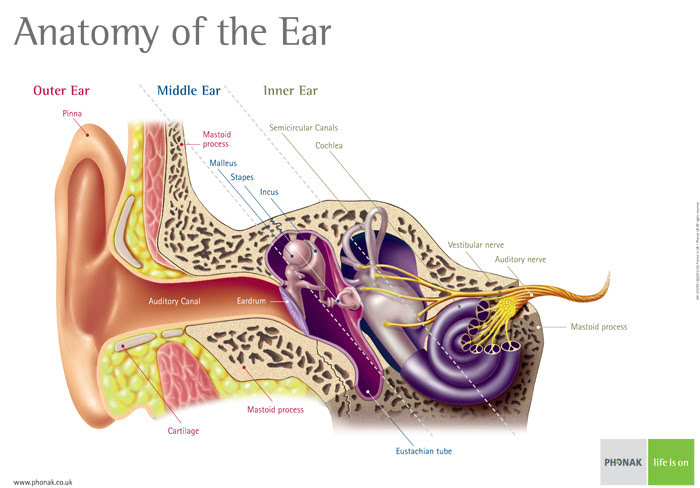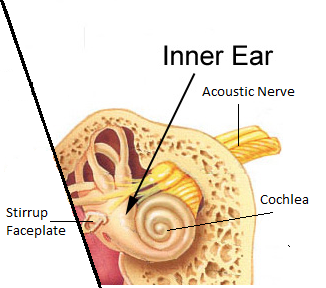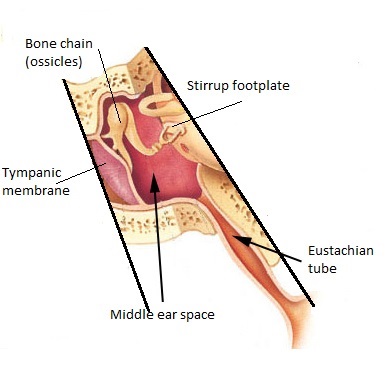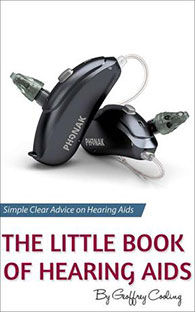Hearing Loss
Some things you should know about hearing loss
All about Hearing Loss
Hearing loss or hearing impairment is becoming ever more prevalent in our noisy world. It is on the increase across the world and it is believed that the onset of hearing loss is happening at a younger and younger age. Let's look at hearing loss, what it is, how it happens and what the symptoms are.
Hearing Problems, Hearing Impairment, Hearing Loss?
Hearing loss can be temporary or permanent. It can happen at birth but generally, it comes on gradually as you get older, however, sometimes it can happen suddenly. If you suffer any type of sudden hearing loss, you should treat it as a medical emergency until you know better. You can read more about sudden hearing loss here.
First of all, a hearing loss does not immediately equate to a hearing impairment, a mild hearing loss or hearing outside of the parameters that we call normal may not actually cause an impairment. When I first qualified as a hearing professional it was generally felt that we should not treat a mild hearing loss. The accepted thought at the time was that even if a person had a mild hearing loss if it was not past a certain degree it probably would not be classed as an impairment.
However, that belief is beginning to change, with recent study findings in relation to the connection between hearing loss and neurocognitive disorders such as dementia. The evidence at present is correlative, which means there is a correlation between the two, correlative evidence does not mean that they are connected without doubt or that one causes the other. The weight of study evidence is gathering though and the opinion of the profession is starting to become that all hearing losses should be treated as early as is possible.
Worried About Your Hearing?
Try our easy-to-use online hearing test. It is completely free and only takes about 5 minutes. It is accurate and will give you a good idea of how well you are hearing.
If You Find The Information on This Page Helpful, Please Rate The Page
Your Ratings allow us to understand if the info we provide is helpful
Rate this article
(Rated 5 stars by 19 people)





 What is the definition of hearing impairment?
What is the definition of hearing impairment?
Hearing impairment is any hearing loss that prevents someone from hearing all of the sounds they normally would through the ear. If the loss is mild, the person may have difficulty hearing a faint or distant speech. If the loss is moderate, a person may have difficulty hearing speech in complex sound situations. If the loss is severe, a person may have difficulty hearing speech clearly. If a loss is profound, a person may have difficulty hearing speech at all.
What are the four types of hearing loss?
Hearing loss can be caused by many different causes, a few of which can be successfully treated with medicine or surgery, depending on the disease process. Most forms of hearing loss cannot be treated other than with hearing aids. Up to recently, we generally discussed three types of hearing los. However, in the recent past a new type of hearing impairment has gained recognition. Auditory processing disorder is not your typicl hearing loss, however, the problems caused by the condition definitely fit within the symptoms of typical hearing loss. Let's talk about types of hearing loss.
- Conductive Hearing Loss: A conductive loss is caused by diseases or obstructions in the outer or middle ear that usually affect all frequencies of hearing. Some conductive hearing losses are temporary, some are chronic or long term. Conductive loss can often be medically treated sometimes with surgery, temporary conductive losses (usually caused by mid-ear infections) are often treated with medication. For a conductive hearing loss of a more chronic nature, a hearing aid is generally a fantastic solution delivering real benefit.
- Sensorineural Hearing Loss: A sensorineural loss results from some damage to the inner ear (cochlea). Sometimes referred to as a nerve-related hearing loss or nerve deafness. The loss can range from mild to profound and often affects certain frequencies more than others. The only treatment for sensorineural hearing loss at present is hearing aids.
- Mixed Hearing Loss: A mixed loss is as it sounds a mix of both conductive and sensorineural hearing losses that occur in both the inner and outer or middle ear. A mixed hearing loss tends to be pretty rare.
- Auditory Processing Disorder: Auditory Processing Disorder or APD is a catch-all term for hearing difficulties caused by central processing disorders. In most cases, a person may have a completely normal audiogram, but their ability to hear speech in noise is compromised. For this reason, the wider media have dubbed it Hidden Hearing Loss.
There are further subcategories of hearing loss, such as sudden hearing loss and single-sided deafness.
Sensorineural Hearing Loss
What is the cause of sensorineural hearing loss?
 A sensorineural hearing loss is due to damage to the pathway that sound impulses take from the hair cells of the inner ear to the auditory nerve and the brain. So sensorineural hearing loss happens when there is damage to the structures of the inner ear (cochlea), it can be caused by age, disease, noise or genetic causes. Or damage to the nerve that runs from the inner ear to the brain (auditory nerve), can be caused by disease, tumour or genetic causes. Or finally, damage to the auditory centre of the brain, varying causes such as disease or stroke. Generally speaking, the causes of sensorineural hearing loss tend to be the following:
A sensorineural hearing loss is due to damage to the pathway that sound impulses take from the hair cells of the inner ear to the auditory nerve and the brain. So sensorineural hearing loss happens when there is damage to the structures of the inner ear (cochlea), it can be caused by age, disease, noise or genetic causes. Or damage to the nerve that runs from the inner ear to the brain (auditory nerve), can be caused by disease, tumour or genetic causes. Or finally, damage to the auditory centre of the brain, varying causes such as disease or stroke. Generally speaking, the causes of sensorineural hearing loss tend to be the following:
- Age-related hearing loss (presbyacusis). This is the natural decline in hearing that many people experience as they get older. It’s partly due to the loss of hair cells in the cochlea.
- Acoustic trauma (injury caused by loud noise) can damage hair cells.
- Certain viral or bacterial infections such as mumps or meningitis can lead to loss of hair cells or other damage to the auditory nerve.
- Ménière’s disease, which causes dizziness, tinnitus, and hearing loss.
- Certain drugs, such as some powerful antibiotics, can cause permanent hearing loss. At high doses, aspirin is thought to cause temporary tinnitus – a persistent ringing in the ears. The antimalarial drug quinine can also cause tinnitus, but it’s not thought to cause permanent damage.
- Acoustic neuroma. This is a benign (non-cancerous) tumour affecting the auditory nerve. It needs to be observed and is sometimes treated with surgery.
- Other neurological (affecting the brain or nervous system) conditions such as multiple sclerosis, stroke, or a brain tumour.
What are the treatments for sensorineural hearing loss?
At present, there are no treatments for a run of the mill sensorineural hearing loss other than hearing aids. There are many laboratories around the world attempting to find a treatment or a preventative substance. Genetic treatment appears to be the front runner for a hearing loss cure.
Conductive Hearing Loss
What can cause a conductive hearing loss?
 A conductive hearing loss is caused by anything that interferes with the transmission of sound from the outer to the inner ear. That could be a malformation of the outer ear, ear canal, or middle ear structures, or a perforated eardrum all of which will cause a conductive hearing loss (this may be corrected surgically).
A conductive hearing loss is caused by anything that interferes with the transmission of sound from the outer to the inner ear. That could be a malformation of the outer ear, ear canal, or middle ear structures, or a perforated eardrum all of which will cause a conductive hearing loss (this may be corrected surgically).
Fluid buildup in the middle ear caused by colds or upper respiratory tract infections will cause a temporary hearing loss (temporary, should pass with the condition that caused it). Ear infection formally called otitis media, (an infection of the middle ear that causes an accumulation of fluid) will interfere with the movement of the eardrum and ossicles (this can be temporary, but chronic ongoing otitis media can cause permanent damage). so the causes of a conductive hearing loss can be classified as:
- Middle ear infections (otitis media).
- Collection of fluid in the middle ear (“glue ear” in children).
- Blockage of the outer ear, most commonly by wax.
- Otosclerosis, a condition in which the ossicles of the middle ear harden and become less mobile.
- Damage to the ossicles, for example by a serious infection or head injury.
- Cholesteatoma (growth usually in the attic of the middle ear)
- Perforated (pierced) eardrum, which can be caused by an untreated ear infection, head injury or a blow to the ear, or from poking something in your ear.
What are the treatments for conductive hearing loss?
It depends on the issue that is causing the problem. If it is a chronic build-up of fluid, well then a very simple procedure involving the insertion of a grommet into the eardrum will help solve the issue. The repair to an eardrum or indeed the replacement of an eardrum is a complex enough procedure which requires a high skill level. If however, the problem is otosclerosis or ossicular chain dislocation, well then it is a more complex procedure involving a surgeon getting into the middle ear cavity and fixing the issue. If the problem is a cholesteatoma, well then that will involve the removal of the growth (usually a build up of dead skin) and any surrounding compromised tissue.
What is the outlook?
Generally, most procedures for conductive problems are successes and at least a great part of the lost hearing is restored. In the case of a cholesteatoma that may not be the case depending on how big it has grown and what damage it did.
Mixed Hearing Loss
What is Mixed Hearing Loss?
Mixed hearing loss is a combination of both conductive and sensorineural hearing loss. With a mixed hearing loss, you have damage in both the outer or middle ear and in the inner ear. More often than not, someone will have a conductive hearing loss for so,e time before the sensorineural hearing loss manifests itself. Like any other hearing loss mixed hearing loss varies in severity but we would usually expect it to be anything from moderate to profound. For people with mixed hearing loss, sounds can be both softer in volume and more difficult to understand.
What are the causes of Mixed Hearing Loss?
Mixed hearing loss is caused by a combination of conductive damage in the outer or middle ear and sensorineural damage in the inner ear (cochlea) or nerve of hearing. The causes for both are exactly the same as they are in isolation, so for the conductive loss, it can be middle ear issues, eardrum issues or even an outer ear problem. For the sensorineural problem, it can be genetics, noise exposure or disease.
What are the treatments for Mixed Hearing Loss?
The treatments for a mixed hearing loss really depend on the degree and make-up of mixed hearing loss. For instance, if the problem is mostly conductive with a mild sensorineural element. It may be that the conductive loss can be medically treated and that will restore enough hearing for no further action to be taken. However, if you don't want to face surgery, or if surgery will not restore the hearing loss to mild, well then the answer is hearing aids.
Auditory Processing Disorder (APD)
Auditory Processing Disorder or APD is a catch-all term for hearing difficulties caused by central processing disorders. In most cases, a person may have a completely normal audiogram, but their ability to hear speech in noise is compromised. For this reason, the wider media have dubbed it Hidden Hearing Loss. I first came to know it as King-Kopetzky syndrome and I think calling it that shows my age. It later became regularly referred to as Central Processing Disorder, Central Auditory Processing Disorder and finally Auditory Processing Disorder.
The American Academy of Audiology notes that APD is diagnosed by difficulties in one or more auditory processes known to reflect the function of the central auditory nervous system.[1] It can affect both children and adults. Although the actual prevalence is currently unknown, it has been estimated to be 2–7% in children in US and UK populations.[2] APD can continue into adulthood. Cooper and Gates (1991) estimated the prevalence of adult APD to be 10 to 20%. It has been reported that males are twice as likely to be affected by the disorder as females,[3][4] and that prevalence is higher in the elderly and increases with age.[5]People with APD show the following signs
- Difficulty hearing in noise
- Auditory attention problems
- Better understanding in one on one situations
- Difficulties in noise localization
- Difficulties in remembering oral information
What Causes APD?
We really don't know, there have been many theories such as acquired injury to the processing centres of the brain at birth, genetic issues that cause processing problems or developmental in that something may occur that compromises hearing during an especially important time of development in the auditory processing area of the brain. For instance, there has been great interest in chronic otitis media in children and its effect on auditory processing during an especially important time of learning and speech development.
What are the symptoms of APD?
Adults and Children with this disorder can experience the signs and symptoms below:
- talk louder than necessary
- have trouble remembering a list or sequence
- often need words or sentences repeated
- have poor ability to memorize information learned by listening
- interpret words too literally
- need assistance hearing clearly in noisy environments
- rely on accommodation and modification strategies
- find or request a quiet work space away from others
- request written material when attending oral presentations
- ask for directions to be given one step at a time
Diagnosis of APD
The Diagnosis of APD is difficult, people with symptoms of APD typically have no evidence of neurological disease and the diagnosis is made on the basis of performance on behavioural auditory tests. The subjective symptoms that lead to an evaluation for APD include an intermittent inability to process verbal information, leading the person to guess to fill in the processing gaps. There may also be problems with understanding speech in noisy environments. Auditory processing is defined as "what we do with what we hear", in APD people can hear clearly (hearing ability is normal) but their ability to interpret or discriminate sounds appears to be far from normal.
Basically, if you have no clear signs of neurological impairment or peripheral hearing loss but are still having problems understanding speech, well then APD will be diagnosed on the basis of auditory tests. Unfortunately, there is no clear consensus on what tests are best to use for diagnosis. The issue is that children especially could do poorly on auditory testing for reasons other than poor auditory perception. It could be inattention, difficulty in coping with task demands, or limited language ability.
What is the treatment for APD?
In children, the treatment is a multi-disciplinary approach. An audiologist is required for diagnosis, any auditory training, and fitting of hearing aids and assistive technology if required. A speech-language therapist is required for some assessments and for language therapy. An Education Adviser experienced in special education is required to observe and assess the child in the classroom, and to work with the teacher on an education plan and teaching strategies. They will also facilitate the use of remote microphone hearing aids or FM systems if needed. Various other professionals may need to be involved depending on an individual child’s needs.
- 1. American Academy of Audiology. "Clinical Practice Guidelines: Diagnosis, Treatment and Management of Children and Adults with Central Auditory"
- 2.Chermak, Gail; Musiek, Frank (2014). Handbook of central auditory processing disorder. comprehensive intervention (2 ed.). San Diego, CA: Plural Publishing. ISBN 978-1-59756-562-2.
- 3.La Trobe University. "(C)APD".
- 4.Musiek, Frank; Gail, Chermak (2007). Handbook of central auditory processing disorder [auditory neuroscience and diagnosis]. Plural Publishing. p. 448. ISBN 978-1-59756-056-6.
- 5.(Cooper JC Jr., Gates GA. Hearing in the elderly – the Framingham cohort, 1983–1985: Part II. Prevalence of central auditory processing disorders. Ear Hear. 1991;12(5):304–311)
Do you have a hearing problem?
Most hearing loss occurs gradually, so the symptoms are often difficult to recognise. It may take something specific for you to realise that your hearing has deteriorated, such as a someone telling you that they think you have a problem; it may take people a long time to let you know, they may not want to hurt your feelings by suggesting you are going deaf. Or, it may be that you failed to hear something that resulted in an accident or some kind of undesirable event; a window-cleaner shouting from atop his ladder to warn you of his falling bucket, for example.
Many people may come to the realisation that there is something wrong with their hearing but will refuse to accept it and try to make up excuses so that they can ignore the problem.
Recognising Hearing Loss
The list below shows some common symptoms of hearing loss:
- People seem to be mumbling
- You have to strain to hear when someone talks or whispers
- You have difficulty hearing someone call from behind or in another room
- You need to watch a speaker’s lips more closely to follow conversation
- Following a conversation is difficult when you are in a group of people
- You have to turn up the volume on the TV or radio
- You have problems hearing clearly on the telephone
- You have difficulty hearing at the theatre, cinema or other venues
- You find it hard to hear in noisy restaurants or in the car
- Family or friends mention that they often have to repeat themselves
If you are experiencing one or more of the problems listed above, you should get your hearing checked by a professional. Some types of hearing loss are reversible, you may be suffering needlessly.
Find An Independent Hearing Aid Centre in Your Area
Arrange a consultation with a trusted Independent hearing healthcare professional in your area



